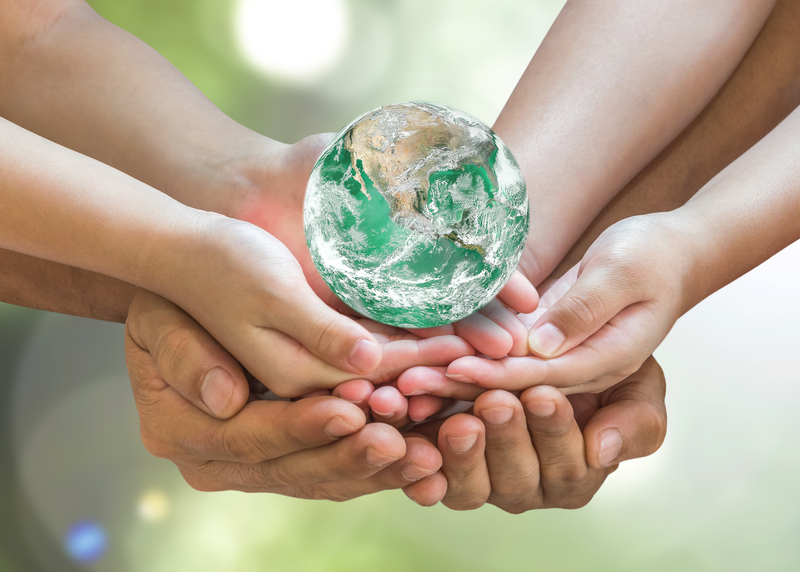
Glass Recycling Insights: Fascinating Quick Facts
Recycling is not just an important aspect of sustainable living, it is essential for reducing waste and conserving our planet's resources. In this comprehensive article, we delve deep into the realm of glass recycling, bringing to light some intriguing insights and quick facts that you may not have known. Let's explore how recycled glass contributes to a more sustainable future.
The Importance of Glass Recycling
Each year, billions of glass bottles and jars are manufactured, consumed, and sadly, disposed of improperly. Glass recycling offers a solution, transforming waste into a reusable resource while significantly reducing environmental impact. Here's why recycling glass is vital:
- Energy Efficiency: Producing new glass from raw materials requires a substantial amount of energy. However, using recycled glass reduces energy consumption by up to 30%.
- Reduced Carbon Emissions: Glass recycling cuts air pollution by about 20% and water pollution by 50% compared to making new glass from raw materials.
- Resource Conservation: Recycling glass reduces the demand for raw materials like sand, limestone, and soda ash.
Understanding the Glass Recycling Process
The journey of glass recycling is fascinating and effective. From collection to reprocessing, each step is critical. Here's a brief overview:
Collection and Transportation
Glass waste is collected through curbside recycling programs, drop-off centers, or commercial drop-offs. It's then transported to a glass recycling facility.
Sorting and Cleaning
Once at the facility, glass is sorted by color to maintain the integrity of the recycled product. This step is crucial as combining certain colors can lead to impurities. The sorted glass is then cleaned to remove contaminants such as food residue, paper, or metals.
Crushing and Melting
The cleaned glass is crushed into small pieces known as cullet. The cullet is mixed with raw materials and melted in a furnace. The high temperatures melt the glass, forming a molten state that can be shaped into new products.
Quick Facts About Glass Recycling
To truly appreciate the impact of glass recycling, let's consider some quick facts:
- Recycling a single glass bottle saves enough energy to power a standard light bulb for four hours.
- Unlike some other materials, glass can be recycled indefinitely without loss of quality or purity, making it a perfect candidate for a circular economy.
- Recycled glass can be turned into various products, from new bottles and jars to fiberglass insulation and even construction materials.
- Using a ton of recycled glass saves over 700 pounds of sand, 120 pounds of limestone, and 100 pounds of soda ash.
Economic and Environmental Benefits
Beyond energy and resource conservation, glass recycling also contributes to economic growth and job creation. The recycling industry provides jobs in collection, processing, and manufacturing sectors, contributing significantly to the economy. Environmentally, reducing landfill usage decreases the harmful emissions associated with waste disposal.
Challenges in Glass Recycling
While glass recycling presents numerous benefits, it also faces certain challenges:
- Contamination: Non-recyclable materials mixed with glass can prevent the recycling process or contaminate the recycled product.
- Collection Costs: Collecting and sorting glass efficiently requires significant investment in infrastructure and systems.
- Market Fluctuations: The demand for recycled glass can vary, impacting the economic incentives for recycling programs.
How You Can Support Glass Recycling
Citizens play a crucial role in the glass recycling ecosystem. Here are some ways you can positively contribute:
- Proper Sorting: Ensure glass is sorted from other recyclable materials to prevent contamination.
- Participate in Local Programs: Engage with and support local recycling initiatives to help them thrive.
- Educate Others: Share information about the benefits of glass recycling with friends and family to increase awareness.
- Reduce and Reuse: Where possible, opt for reusable glass containers and products to minimize waste generation from the outset.
Conclusion
Glass recycling is an integral part of sustainable waste management, offering immense benefits for both the environment and the economy. By embracing recycling, educating ourselves and others, and actively participating in recycling programs, we can make a collective effort towards a more sustainable future. Remember, the impact starts with you.
Let's continue to support efforts towards a greener planet by prioritizing glass recycling and fostering a culture of sustainable living.
